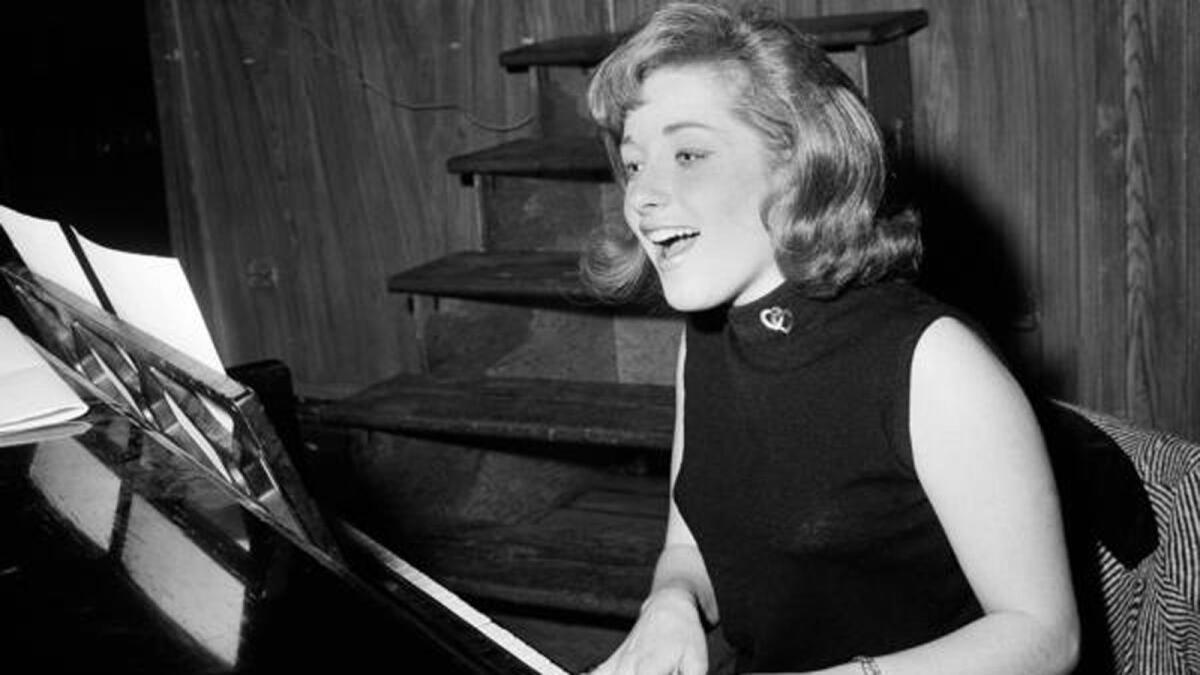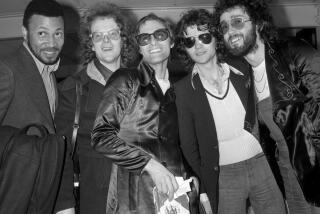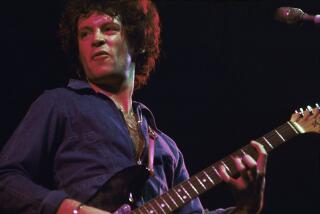Lesley Gore dies at 68; singer found fame with ‘It’s My Party’

Lesley Gore rocketed to pop music stardom by singing about a typical 1960s teenage girl’s emotional distress over another girl stealing her boyfriend, but Gore may have created her more lasting legacy with a follow-up hit that ushered nascent feminism onto the rock radio dial.
That was the assertive “You Don’t Own Me,” Gore’s fourth consecutive hit in four months after her debut release, “It’s My Party,” zoomed to the top of the Billboard Hot 100 in 1963. The New York-born, New Jersey-reared singer had just turned 17 when she found success, barely a year after she’d decided to give singing a shot.
“I was 16 and as I recall, I just stopped taking piano lessons,” Gore told The Times in 1967. “My parents suggested I take dancing, but I had had tap and acrobatic and got more banged up and bruised than I care to be again. I suggested singing — I had always sung as a child — so I found a teacher and started private lessons.”
Gore, who died Monday at 68 of cancer in New York, said that her teacher’s standard operating procedure was to have his students record a demonstration of what they were learning for their parents.
“When I did my session, the man working the controls said he’d like to sign me,” she recalled. “I took his card and my father called him. Then my father made an appointment with an agent, who looked at him and said, ‘Yeah, the kid’s great.’ He got me an audition and I signed with Mercury Records.”
“It’s My Party” was written by three men — John Gluck, Wally Gold and Herb Wiener — and, not surprisingly for that time, depicted a girl devastated when her boyfriend, Johnny, turns up at the soiree she’s hosting with another girl, Judy, wearing his ring. “It’s my party,” Gore sang repeatedly in the song’s refrain, which voiced pain rather than anger or vengeance, “and I’ll cry if I want to.”
The song, produced by Quincy Jones, spent two weeks in the No. 1 slot, and remained in the Top 100 for more than three months. For the hastily recorded sequel, “Judy’s Turn to Cry,” writers Edna Lewis and Beverly Ross introduced a bona fide female perspective into the scenario. The singer responds to the original insult by kissing another boy, which prompts Johnny to punch him, and then reunite with Gore’s character.
Enlightened it wasn’t, but it set the stage for “You Don’t Own Me,” in which Gore gave voice to a woman’s independence fully in sync with ideas popularized by Betty Friedan’s wildly successful 1963 book exploring emerging feminist issues, “The Feminine Mystique.”
“You Don’t Own Me,” however, was written by two men, John Madara and David White. Its message resonated with a broad swath of young music fans and reached No. 2 early in 1964.
The song — punctuated by the lines “You don’t own me, don’t try to change me in any way / You don’t own me, don’t tie me down ‘cause I’d never stay” — was introduced to younger generations in a 2012 public service announcement. The video promoting women’s reproductive rights featured numerous celebrities lip-syncing to her recording.
Despite her quick rise to stardom, Gore, who was born Lesley Sue Goldstein on May 2, 1946, in Brooklyn, graduated from high school and continued her education, studying English and American literature at Sarah Lawrence College in Yonkers, N.Y. She also worked in theater productions while she was in college, and later developed a nightclub act that she delivered to mixed reviews in New York and Los Angeles.
Along the way she landed two appearances on the 1960s camp superhero TV series “Batman” as Pussycat, a minion to super villain Catwoman.
Gore played piano and mandolin, and continued writing and recording music, reuniting in 1975 with producer Jones for an album “Immortality” that was well-received by those who tracked it down, although it never made the Billboard 200 Albums chart.
She earned an Oscar nomination for “Out Here On My Own,” one of the songs she composed with her brother, Michael, for the 1980 film “Fame.”
Her most recent album, “Ever Since,” was released in 2005, ending a three-decade hiatus from recording.
In addition to her brother and her mother Ronny, Gore is survived by jewelry designer Lois Sasson, her partner of 33 years.
Twitter: @RandyLewis2
More to Read
Start your day right
Sign up for Essential California for the L.A. Times biggest news, features and recommendations in your inbox six days a week.
You may occasionally receive promotional content from the Los Angeles Times.







